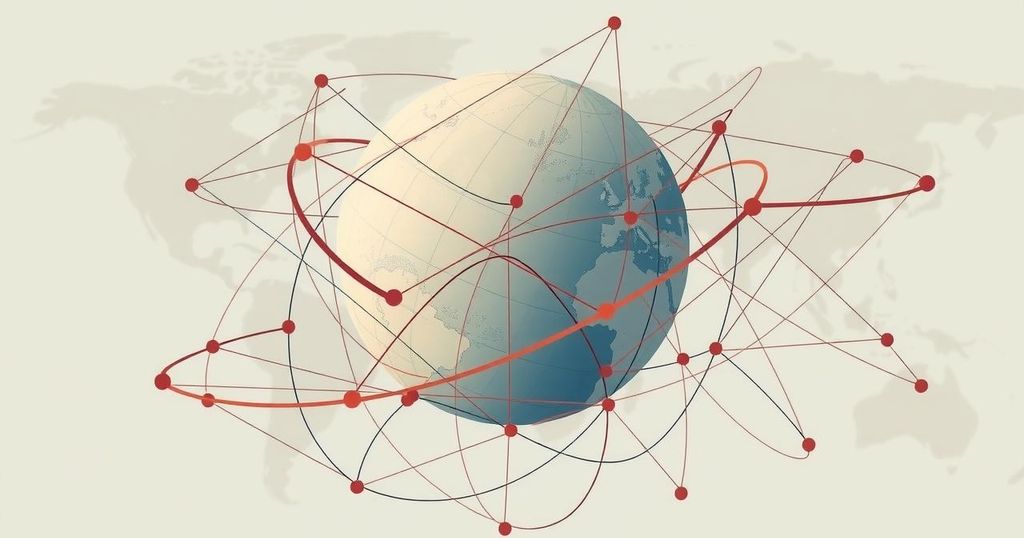Marco Rubio Declares Nicaragua, Venezuela, and Cuba as Enemies of Humanity

During a press conference in Costa Rica, U.S. Secretary of State Marco Rubio branded Nicaragua, Venezuela, and Cuba as “enemies of humanity,” attributing the regional migration crisis to these regimes. His statements sparked strong responses from leaders in these nations, notably Cuban President Miguel Díaz-Canel and Venezuelan Foreign Minister Yván Gil, who criticized Rubio’s position and accused the U.S. of contributing to ongoing hardship in their countries.
U.S. Secretary of State Marco Rubio labeled the governments of Nicaragua, Venezuela, and Cuba as “enemies of humanity” during a press conference in Costa Rica, asserting that these regimes are the primary cause of the regional migration crisis. He claimed that without these governments, the migration crisis would not have occurred, emphasizing the dysfunction of their systems. In a statement delivered in Spanish, Rubio criticized the leaders of these nations, highlighting their roles in exacerbating the crisis.
In response, Cuban President Miguel Díaz-Canel denounced Rubio’s remarks as “shameless,” attributing the migration exodus from Cuba to the continued U.S. blockade that restricts essential goods. Venezuelan Foreign Minister Yván Gil also condemned Rubio, labeling his obsession with the three countries as “pathetic” and referring to the real enemies of humanity as those who perpetrate chaos and misery worldwide due to military aggression.
Rubio’s remarks particularly targeted Nicaragua, under the leadership of President Daniel Ortega, who gained extensive powers through a recent constitutional reform criticized as questionable. Rubio stated that Nicaragua has devolved into a family dynasty that suppresses dissent, targeting religious organizations and individuals opposing the regime. He remarked on the significant number of Nicaraguans fleeing this political oppression, comparing their plight to those escaping regimes in Cuba and Venezuela.
During his official visit, Rubio has emphasized addressing illegal migration as a primary concern of the Trump administration. His tour, instrumental in this regard, began in Panama and extended through El Salvador and Costa Rica, with scheduled stops in Guatemala and the Dominican Republic to discuss migration issues and broader regional stability.
The discourse surrounding migration in Latin America is deeply intertwined with the political situations in Nicaragua, Venezuela, and Cuba, where authoritarian regimes have led to widespread human rights violations and economic instability. The U.S. government, particularly under various administrations, has positioned itself in opposition to these governments, citing them as primary contributors to regional migration crises. The influence of U.S. sanctions, diplomatic relations, and immigration policies directly impacts late 20th and early 21st-century migration trends in the Hemisphere, making the analyses of figures like Marco Rubio crucial in understanding the diplomatic landscape.
In conclusion, Secretary of State Marco Rubio’s remarks identified Nicaragua, Venezuela, and Cuba as the primary culprits behind the migration crisis affecting the region. His comments were met with strong rebuttals from leaders in those nations, highlighting the complexities of U.S.-Latin American relations. As discussions on migration continue, the diplomatic actions and policies of the U.S. government remain pivotal in shaping both regional stability and humanitarian conditions.
Original Source: ticotimes.net







